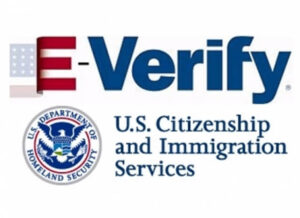What's 01 Expert Letter?
The O1 visa is a U.S. non-immigrant visa for individuals with extraordinary ability in sciences, arts, education, business, or athletics, or with a record of extraordinary achievement in film/TV, who have national or international recognition.
Categories
- O-1A: For individuals with extraordinary ability in sciences, education, business, or athletics.
- O-1B: For individuals with extraordinary ability in the arts or extraordinary achievement in the motion picture or television industry.
Benefits
- Temporary stay in the US
- Work authorization
- Ability to bring support staff
It provides a pathway for exceptional individuals to temporarily live and work in the US.
What is an O1 Expert Opinion/Advisory Letter?
An O-1 expert opinion letter (also sometimes called a consultation letter or advisory opinion) is a critical piece of evidence in an O-1 non-immigrant visa application. The O-1 visa is for individuals with extraordinary ability in the sciences, arts, education, business, or athletics, or those with a demonstrated record of extraordinary achievement in the motion picture or television industry.
An expert opinion letter, often requested for O-1 visa petitions, is a document written by a recognized expert in the applicant’s field, attesting to their extraordinary ability and qualifications. This letter serves to validate the applicant’s achievements and provide context for the USCIS adjudicators, who may not be familiar with the specific field.

Here's a breakdown of what an O-1 expert opinion letter entails:
Purpose:
Validate the applicant’s achievements:
The letter should clearly explain the significance and impact of the applicant’s work within their field.
Establish credibility:
A letter from a recognized expert adds weight to the applicant’s claims of extraordinary ability.
Provide context for USCIS:
The letter helps adjudicators understand the applicant’s achievements within the context of their field and why they qualify for an O-1 visa.


Clear statement of support:
The letter should clearly state that the expert supports the applicant’s O-1 visa application.
Date and contact information:
Including the date and contact information of the expert adds to the letter’s legitimacy.
Key elements of the letter:
Expert’s credentials:
The letter should include a detailed bio of the expert, highlighting their own expertise and standing in the field.
Attestation of extraordinary ability:
The expert should explicitly state that the applicant possesses extraordinary ability and meets the O-1 criteria.
Specific examples:
The letter should cite specific examples of the applicant’s achievements, contributions, and impact on the field.
Contextualization:
The expert should explain how the applicant’s work surpasses typical achievements in the field.
Specific O-1 criteria:
The letter should ideally address specific criteria the applicant is using to demonstrate their extraordinary ability, such as awards, publications, or critical roles.
This letter is written by an authority or expert in the applicant’s field who can attest to the applicant’s extraordinary ability and achievements. It serves to:
- Validate the Applicant’s Achievements: The expert provides an objective evaluation of the applicant’s accomplishments, explaining their significance and impact within the field.
- Establish Credibility: The letter from a recognized expert adds weight and credibility to the applicant’s claims of extraordinary ability.
- Provide Context for USCIS: U.S. Citizenship and Immigration Services (USCIS) officers may not be experts in the applicant’s specific field. The opinion letter helps them understand the applicant’s achievements in the context of their industry and why they rise to the level of “extraordinary ability.”
- Support Specific O-1 Criteria: The letter should ideally address specific criteria that the applicant is using to demonstrate their extraordinary ability (e.g., awards, publications, critical roles, commercial success).


Key Components of a Strong O-1 Expert Opinion/Advisory Letter:
- Expert’s credentials: Establish the expert’s authority and qualifications.
- Detailed evaluation: Provide a thorough assessment of the individual’s achievements and contributions.
- Specific examples: Offer concrete examples of the individual’s work and its impact.
- Comparison to peers: Compare the individual to others in their field, highlighting their exceptional abilities.
- Clear conclusion: Clearly state that the individual meets the O-1 visa requirements.
A well-crafted expert opinion letter can significantly strengthen an O-1 visa application.
Documents required for O-1 EOL
Payment methods:
Payments can be made using one of the following (Zelle or ACH are Preferred):
Zelle: accounts@aaeevaluations.com
ACH to our bank account:
BANK OF AMERICA
Account Name: AAE EVALUATION
Account No. 4350 6003 3750
ACH Routing No. 051000017
Credit card authorization: Fill out the attached CC form and authorize us.
Note: We do not accept checks.

Unleash Your Academic Success Today
FAQ
Quick QuestionS
1. What is O-1 expert, recommendation, and advisory letters?
They are formal statements from recognized authorities in your field confirming your extraordinary ability and contributions.
- Expert/Recommendation Letters: Endorse your skills, achievements, and reputation.
- Advisory Opinion Letters: Required statement from a peer group, labor organization, or relevant professional entity evaluating your work.
2. How do these letters differ from each other?
- Recommendation Letters: From colleagues or industry leaders supporting your petition.
- Expert Opinion Letters: From recognized specialists providing independent evaluation of your work.
- Advisory Opinion Letters: USCIS-required letter from an official peer group or labor body for certain O-1 categories.
3. Why are letters important for an O-1 visa application?
They serve as third-party evidence proving you meet the “extraordinary ability” standard and help establish that you are among the top professionals in your field.
4. Who typically writes these letters?
Well-known professionals, academic leaders, industry executives, award-granting officials, or governing bodies in your field.
5. Are advisory opinion letters mandatory for all O-1 petitions?
Yes, unless the petitioner can prove no appropriate peer group or labor organization exists.
6. How many letters are typically included in a strong O-1 petition?
Usually 6–10 letters, including at least one formal advisory letter and multiple recommendation/expert letters.
B. Eligibility & Purpose
7. What qualifications should an expert or recommender have?
They should have recognized authority — awards, publications, leadership positions, or influence in your field.
8. Can my current employer or client write a letter?
Yes, but balance with independent letters to avoid appearance of bias.
9. Do letter writers have to be in the U.S.?
No, but U.S.-based recommenders strengthen your case by showing your recognition in the American market.
10. Should letters come from independent sources?
At least half should be from people with no direct financial or employment relationship with you.
11. Can a peer from my home country write a letter?
Yes — international recognition is valid for O-1, but ensure the letter clearly shows the writer’s global reputation.
12. How do advisory letters differ for O-1A (science/business) vs. O-1B (arts/film/TV)?
- O-1A: Advisory letter from a peer group, labour organization, or management organization.
- O-1B (arts): From a labour organization in the arts.
- O-1B (film/TV): From both a labour organization and a management organization.
C. Content & Structure
13. What should an O-1 recommendation letter include?
- Recommender’s credentials
- Relationship to you (or independence)
- Detailed achievements and recognition
- Evidence you are in the top percentage of your field
- Closing endorsement for O-1.
14. Should the letters cite specific examples?
Yes — provide measurable outcomes, notable projects, awards, or innovations.
15. Should the letter address O-1 criteria directly?
Yes — ideally each letter should map your accomplishments to one or more O-1 regulatory criteria.
16. How formal should the letter be?
Professional tone, formal formatting, and no overly casual language.
17. Can letters be technical?
Yes, but avoid jargon that a USCIS officer might not understand. Include plain-English explanations.
18. Should future potential be mentioned?
Yes — show you will continue to perform at a high level in the U.S.
D. Formatting & Documentation
19. How long should an O-1 letter be?
Usually 1.5 to 3 pages.
20. Should letters be on official letterhead?
Yes — it greatly boosts credibility.
21. Is a signature required?
Yes — handwritten (scanned) preferred, though secure digital signatures are accepted.
22. Should I include the recommender’s CV?
Yes — attach a short biography or CV to prove their authority.
23. Should letters be notarized?
Not required for USCIS, but can add authenticity.
24. Are scanned copies acceptable?
Yes — you can submit scanned signed copies.
E. Process & Best Practices
25. How far in advance should I request letters?
Request at least 4–6 weeks before your planned filing.
26. What information should I provide to letter writers?
Your CV, awards, publications, press coverage, notable projects, and an explanation of O-1 criteria.
27. Can I draft the letters myself for them to review?
Yes — this is common, but allow them to edit to reflect their own voice.
28. How do I avoid repetitive content across letters?
Assign each letter a unique theme or accomplishment.
29. What mistakes should be avoided?
- Generic praise without evidence
- Weak or unknown recommenders
- No connection to O-1 legal criteria
- Letters that look copied and pasted.
30. How many letters are “enough” for O-1?
Typically 6–10, with a balance of advisory, expert, and recommendation letters, including both affiliated and independent voices.
